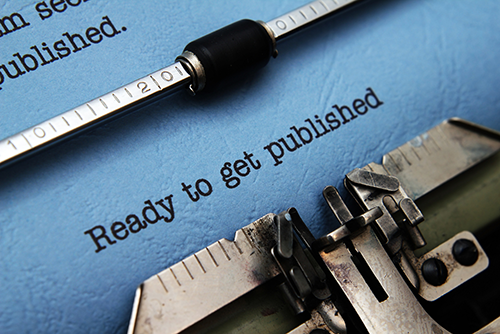Last Updated on March 31, 2023
I was lying in bed one night next to my husband, both of us reading, when I first noticed it. “Stut,” “stut,” “stut.” Maybe I'd been hearing it for a while but it hadn't really registered. What new sound had he learned to make with what body part? I wondered. After nearly 20 years lying next to him I had gotten used to the tongue clicking, throat clearing, sniffling, leg scratching, and shoulder rubbing. Then there was the shift in breathing that indicated he'd fallen asleep and the yowch! that followed when the large hardcover tome he'd been holding hit him in the nose. Well, at least that nightly calamity was a thing of the past now that he'd begun to read on a Kindle.
The sound didn't seem worth disturbing his reverie, so I filtered it out and continued to read.
A few days later my husband presented me with my own Kindle. I was a skeptic. “I like books, I like paper, I'm a writer, an editor, this is a threat to my livelihood, to an art form, to the entire publishing industry,” I railed. “This is treachery.” Resisting felt like a matter of honor.
But we were going on a long trip and even I could see the wisdom in not carrying a whole additional suitcase just to accommodate my reading materials. To get acclimated, I took my Kindle to bed, and embarked on this new relationship with a storm of complaint. “The screen is too dark, the metal is too cold,” I whined. “This isn't working for me.” I slipped my Kindle into its new purple leather cover and began to finger the soft suede on the inside cover as I read. Now at least it felt more like a book.
Within the first two hours, everything began to shift. Despite myself, I found that reading on my Kindle wasn't just as good as reading a book, it was . . . better. A smaller type page allowed me to absorb the material without my eyes wandering. I didn't lose my place in the book, or misplace the book under the bed, or have to dog ear pages to keep track. If I needed to, I could even make the text larger. Perhaps the best feature, if I wasn't sure of the definition of a word, I didn't have to guess, the dictionary definition was a click away. Reading on my Kindle felt like a direct brain-to-brain transfer between me and the author — nothing of the material world to get in our way.
Once I had my own Kindle, the “stut” “stut” “stut” mystery was solved. That was the sound of the Kindle button being clicked to “turn a page.” The sound hadn't emanated from my husband's body after all.
So we stut stutted side by side, night after night, often doing something that hardcover books never made easy – reading the same book at the same time.
“Where are you?” I asked.
“Did she –”
“Don't tell me,” he said. “You'll ruin the story.”
This is how it went for my first year of Kindle ownership. A new medium that made me fall in love with stories all over again. But now, a year later, there's been another shift. When I look back over the books I've read on my Kindle home page, lots of them it turns out, probably more than I would have read if I'd had to buy hardcover, more than I would have read if I hadn't made those impulse buys of 2 a.m., they feel inconsequential. Immaterial.
Though every book case in our house is already full, I miss being able to pull out a copy of the best of those books, to leaf through for a familiar passage, to put my very solid pen on the page and make my own mark of praise or emphasis. To hold up a book and say, “Look, here is this new wonderful object that didn't exist before that has now come into the world.”
If Amazon is smart (dumb question, huh), they'll come up with a bundling option where you can get a hardcover copy at a bigger discount if you buy it within a certain time period of having bought the Kindle version. Because I am sure there are other people like me who want a cherished book to be made of more than just air and electrical charges. Brain-to-brain transfer is great, but after I've read a book I admire, I want it to exist in a more concrete form than the ideas in my own head. When I really fall in love with a book, I want it to have its own body.
- Is a Writers’ Group for Me? - August 5, 2024
- How to Show and Tell in Your Writing - January 24, 2023
- 5 Tips for Writing a Memoir About Trauma - August 5, 2020

